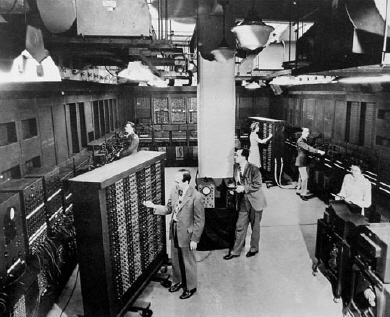Hey Tablet Skeptics: Here's Some Hilarious Old-Timey Anti-Notebook PC Rants
There were many objections to my blog yesterday in support of market researcher Canalys's move to reclassify tablets as full-fledged PCs. Some were very thoughtful, I can't deny that.
But faster than we realize, I think these objections to the concept of tablets=PCs may feel as antiquated as Bill Gates' "640K ought to be enough for anybody." or "There is no reason for anyone to have a computer in his home."
Or, more relevantly, these rants against portable computers (yes, that's what they called them back in the day) that I culled below (mostly from the awesome Classic Computer Magazine Archive)):
--------------------
"If you've got more money than good sense, you may want to try a portable computer: laptop, notebook, whatever. My advice? Forget it; they make terrible game machines. My objections? 1. Lousy ergonomics [cramped keyboards and nonstandard location of arrow keys, for example]. 2. No way to attach a joystick without an external parallel port adaptor]. 3. Without an expansion slot there is no external sound capability. 4. The display is, of necessity, small and usually monochrome [unless you're willing to spend a ton of money for color). And 5. Slow doesn't begin to cover it. Dollar for dollar, you get about twice as much performance from a desktop."
- From PC Pilot, The Complete Guide to Computer Aviation, by Scott Smith, 1994
"That doesn't mean that it can be used for graphics, however. The active area of the display is only 0.8 high, hardly enough for any kind of detailed plot. Nor is it--or any of the notebook computers--much good for screen-oriented games. Even spreadsheets are a bit of a problem--your window on the entire sheet is very small. The most ideal applications for a notebook computer are light word processing and communications. Although the small display is a bit of a problem, it can be largely overcome with scrolling...Unfortunately, most notebook computers are not, as yet, capable of true word processing."
- From Creative Computing, January 1984.
"Laptops have less-than-ideal screens. Your friends may start calling you 'Squint Eastwood' behind your back."
- From Compute!, August 1991.
"Nope, we'll never get one of these to fit inside someone's house. And why would you want to?"
Courtesy of Computer History Museum"I'd hear the whispers in the hallway: 'If the Good Lord had intended Adam and Eve to have portable computers, He wouldn't have given them an Apple.'"
- From Memoirs of an Osborne by David Nimmons.
"While 'regular' desktop PC systems have always been and likely always will be the way that most people buy PCs, notebook PCs (also called laptops) have become very popular in recent years. At first they were almost exclusively the province of big business 'high rollers' due to their very high cost. Now the cost of some notebooks PCs has come down dramatically, and they have really entered the mainstream. Many people use a notebook as their only PC today, and for some they offer advantages that make them very worthwhile. However, notebooks also represent a trap that far too many people fall into."
- From a PCGuide.com article ostensibly last updated in 2001(!).
--------------
Of course, it's only fair to include some choice quotes from the other side - writers a tad too optimistic about laptop/notebook/portable computers.
"By 1990 no computer bigger than the Apple Macintosh will be selling well."
- From Creative Computing, November 1984.
"Roach (Chairman of Tandy Corp./Radio Shack, maker of the first popular notebook PC, the Tandy 1000) also admits an admiration for the HP Portable and thinks that 'all machines may be basically portable sometimes in the near future.'"
- From Creative Computing, November 1984.
